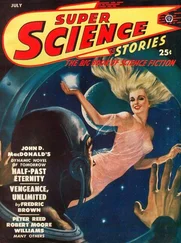When another officer came to speak to Chadwicks, Jimmy got the truck driver’s name, and other pertinent information.
Kennicott came over to him and said, “I’ll get back with this right now, Jimmy, they can get it in. You going to phone it in?”
“Yes.”
“Then how about the lend of your car? Can you get a ride?”
Jimmy gave him the keys. “Leave it in the lot there. Put the keys under the mat on the driver side. Get anything?”
“What there is, I got. Who needs it?”
Kennicott left. Wing located Chadwicks again, over by the panel truck. It had Palm County plates. It was being rocked up onto its wheels. One ambulance was gone. “Who was in this one?” Wing asked.
“Claude Barnsong, from Everset.”
“Which Barnsong is that, Cal?”
“The one runs a charter boat out of Everset Marina. His license here says he was... thirty-four. He was alone and he was in a hurry. Got a half ton of marine engine in that thing and it came frontwards when he hit.” Wing borrowed the license and wrote down the RFD address. Chadwicks was able to lend him the identification on the other two deceased, a Mr. and Mrs. George Kylor, aged fifty-eight and fifty-six, with a street address in Grand Island, Nebraska, driving a 1960 Buick. They had lost control of it. There was ample evidence of the point of impact being in the southbound lane, all the fine scale and dust which is hammered loose from the underparts of cars in a head-on smash, the white powder of glass, burst of oil and spray of water, all captured on highway patrol cameras before traffic was permitted to roll over the place of impact. The police report would fix the blame on the Kylor car — and the insurance people would eventually settle. But who was responsible for a road too narrow for the traffic, or for shoulders scoured down by summer rains?
The other ambulance was gone. The panel truck had been hauled away. The burst and scattered luggage had been collected and shoved back into the Kylor vehicle. Patrolmen halted traffic while the wrecker turned out onto the highway with it. As Wing walked over toward the patrol cars to beg a ride back to the city, he kicked something in the grass and it rolled into the light. It was a carved coconut, with a bright clown face and a mailing tag. He squatted and used his lighter and saw the tag was blank. He straightened up and kicked it into the shallow ditch where some child might find it the next day.
A county deputy gave him a ride back into town. He turned his copy in, for the page-one space which had been cleared for it. After he had retrieved the hidden keys and gotten behind the wheel of the station wagon, he sat there in the dark parking lot for a little while without turning on the lights or the motor. There was always a carnival flavor about roadside death in the hot months. Flashing lights, the distant melodies of car radios, the abrupt nervous laughter at macabre jokes, the hot gaseous stink of engines mingling with the trampled fragrance of the grass, recognitions, greetings and farewells in the night, sirens coming and going, the holiday awareness of knowing strangers were dead, not you.
It had drained him, yet made him wonder that it could not touch him more deeply. The coconut mask was a sickly bathos. The fat orange slacks were clownish. He could believe that in these past few years of his life a crust had formed across some middle portion of his mind. He could perceive the relationships of his existence, yet he seemed to be required to explain them to himself in a search for reaction which was so studied that the whole procedure became meaningless. Sometimes he felt as if he had forgotten the first language he had learned to speak, and his acquired tongue had no meaningful words in it. It was not a cynicism. It seemed more of a process of a progressive deadening, depriving him of the internal dialogue he had previously enjoyed, that interplay of query and response which made awareness more acute. He had lost some textural, essential appreciation of reality, and felt himself to be in a dream of boredom, unresponsive to all cheap solutions, jeering at himself in a halfhearted way. And ready for Elmo’s offer, ready for almost any change, just to see what it would do — thinking of himself as a small creature in a maze which it has learned too well, and now needs the stimuli of experimental complications.
A mosquito whined to a thirsty silence against his throat. He slapped it, started the car and drove slowly to Tamarinda Street. It was midnight. Number 27 was lighted. He parked several houses beyond it, and walked quietly back to it. He tried to remember the last time he had seen his sister, Laura, and could not recall. Eight months at least. She was his only blood relative left in the state, and she was seventeen years older than he. They had been close, a long time ago. But the relationship had not survived the loss of what she had wanted for herself and for him.
Laura lived with her invalid husband in a shabby little frame house. He went up onto the porch and looked through the living room window. She sat staring without expression at television turned so low he could barely hear the sound of it through the screen.
“Laura,” he said.
She gave a violent start and put her hand to her throat and stared round-eyed at the window.
“It’s Jimmy,” he said in the same tone.
She pushed herself up out of the chair, turned the set off, and let him in. She wore a green housecoat belted around her thick body. Her hair was sandy gray. She had his long narrow head, beaked fleshy nose, pale blue eyes. But her mouth was tiny, pinched, set in a mesh of lines radiating from it.
“What’s wrong?” she demanded in a low voice.
“Nothing. Nothing at all. I drove by to see if there was a light on. I just wondered how you are.”
She shrugged and went back to her chair. He sat on a lumpy daybed. The small room smelled of fly spray, boiled food and sickness.
“How do you think I am?” she asked. “I’m queen of the May. Tomorrow I’m going to the south of France in my private yacht.”
“How’s Sid?”
She shrugged again, gesturing toward the back of the house by tilting her head. “Sometimes bad and sometimes worse. But he had a pretty good day today. He ate good. But he gets terrible depressed. It’s eleven years now, and he was an active man. He’s getting so heavy lately, it’s almost more than I can do, getting him into the chair and back into bed.”
“You ought to have some help.”
“I don’t like to bother all the servants with little things like that. On the pension I keep so big a staff I can’t keep track.”
“Can’t Betty help out at all?”
She gave him a look of sad disgust. “Pregnant with her sixth? Three thousand miles away? A sixth grandchild I’ll never get to see. Except the pictures she sends. She looks so little and tired in the pictures, Jimmy. How can she help out? You knew what he was when she run off with him. We all did, and there wasn’t a damn thing we could do. He’s a factory hand out there. A big car and big cigars, six kids and time payments and broke by Wednesday every week. I’ll never see her again. They’ll never get far enough ahead to come this far, and I can’t leave Sid. What’s the matter with you? How do you expect her to help out?”
“Don’t get sore. I was just wondering.”
After a long silence she said, “Do you remember how everything used to be, Jimmy?”
“Yes.”
“I think a lot about how things went wrong for everybody, and I wonder why it had to be this way. I keep thinking of what Mom kept saying before she died. In those last weeks she got homesick for New York State, for the Cherry Valley, even though she hadn’t ever been back since the day she and Dad left, when she was a young girl. And she kept saying that things had gone wrong because they’d come down here. You know, nothing seemed wrong then. Nothing at all, except her having to die that way, hurting. How old were you when she died?”
Читать дальше
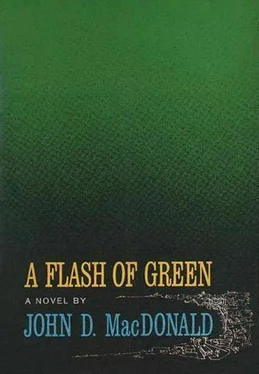

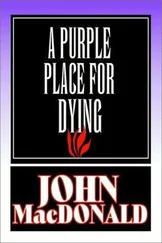
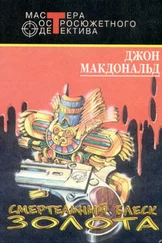
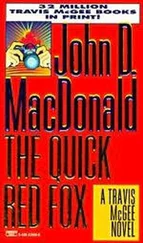
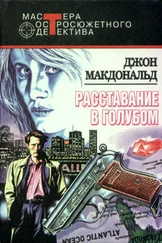

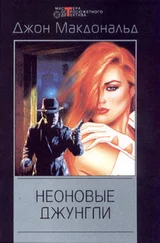
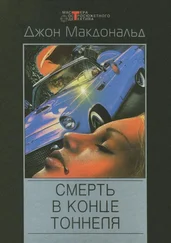
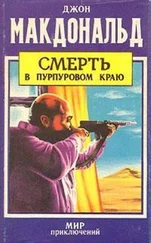
![Джон Макдональд - Wine of the Dreamers [= Planet of the Dreamers]](/books/430039/dzhon-makdonald-wine-of-the-dreamers-planet-of-thumb.webp)

